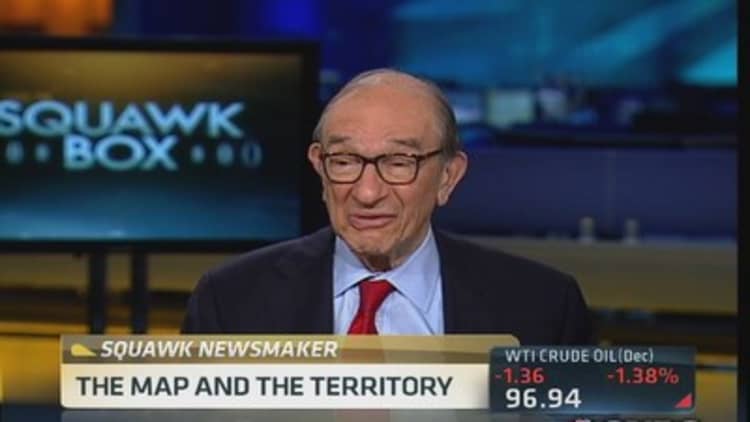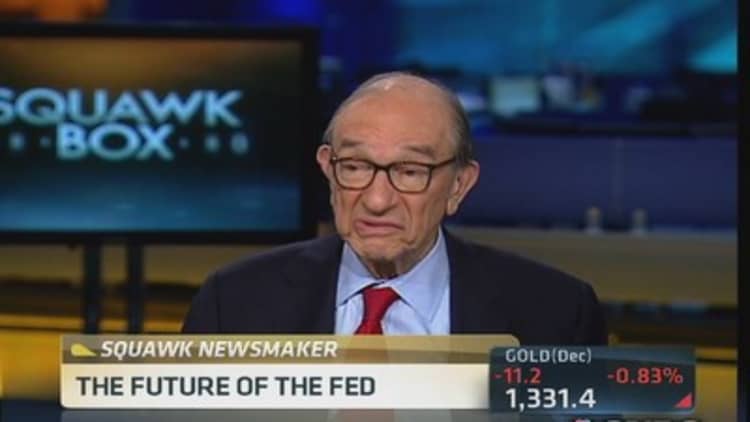
Asset bubbles alone don't cause financial crises like the one in 2008, former Federal Reserve Chairman Alan Greenspan told CNBC on Wednesday. Instead, the combination of bubbles and leverage is the problem, he said.
"We missed the timing badly on September the 15th, 2008 [the day Lehman Brothers filed for bankruptcy]. All of us knew there was a bubble. But a bubble in and of itself doesn't give you a crisis," he said in a "Squawk Box" interview. "It's turning out to be bubbles with leverage."
Take the explosion of the dotcom bubble in the 1990s and even the stock market crash of 1987, he continued, they barely showed up in longer-term economic growth figures.
In his new book, "The Map and the Territory," the 87-year-old Greenspan reflected on the 2008 financial crisis and the questions it raised about the economic models used to predict risk. He looked at the shortcomings of current forecasting tools and how they can be updated to take better account of human nature.
"If you're looking at the distribution of outcomes, fear is hugely more important than euphoria or greed," Greenspan told CNBC. "Bubbles go up very slowing and then they go bang."
After the 2008 crisis, Greenspan said, he came to realize there was "something fundamentally wrong" with the way he and many colleagues were looking at the economy. "I was shocked, surprised, and since delighted at how many of the aspects of fear, euphoria and time preference ... [were] systematic," not random.

Greenspan's tenure as Fed chairman spanned four presidents and nearly 19 years—starting with his appointment in 1987 by Ronald Reagan and ending with his retirement in 2006, after George W. Bush tapped Ben Bernanke to lead the central bank.
Bernanke will step down at the end of his second four-year term in January.
President Barack Obama has picked current Fed Vice Chair Janet Yellen for the top job. Her nomination needs to be confirmed by the Senate.
Yellen is a "very bright lady," Greenspan said. She will surprise everybody in a good way should she become Fed chair, he added.
Greenspan also warned about the significant decline in net savings in the last year, and the drop in the household savings rate as well.
—By CNBC's Matthew J. Belvedere. Follow him on Twitter @Matt_SquawkCNBC.


